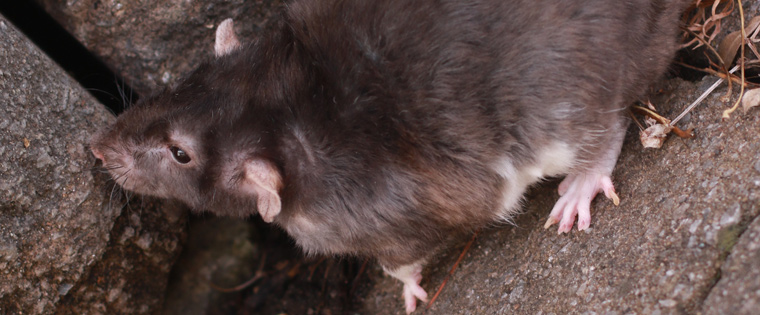-
info@aaanimalcontrol.com
Call us for help in your town
Humane Wildlife Education
Is It Possible That Relocated Rats Survive?
Need rat removal in your hometown? We service over 500 USA locations! Click here to hire us in your town and check prices - updated for year 2020.
Studies have shown that relocated rats rarely survive after being released. Rats tend to perish out of their usual territory. This fact, added to the sheer futileness of going through the trouble of capturing, transporting, and releasing a disease carrying vermin that probably would’ve died anyway within a couple of weeks, makes rat relocation completely unpractical and useful to no one. This doesn’t mean that you shouldn’t take care of your rat problem – you absolutely should, and very quickly. In what follows, I will go over the main reasons why relocated rats don’t survive.

Rats don’t thrive in novelty environments. Our common rat already has an incredibly low life expectancy, very few black or Norway rats living for more than a year. On top of that, rats are cowards and don’t like to venture outside of known grounds unless obligated by special circumstances. When special circumstances do arise, and they do need to go in search of a new home, it’s very likely that they won’t make the journey.
Learn more about rodent eating habits: Do rodents eat insects?
Rat competition. Rats operate under dominance hierarchies. They usually live together in large groups, and everyone knows their place. When food sources are plenty – as they would’ve been in your home – rats do compete among themselves for the bigger piece, because the hierarchy is not only about food rights, it’s also about reproductive rights, the top rat generally being the one that reproduces the most, but it’s just your everyday competition, nothing out of the ordinary. Street rats are another thing – we’re talking about downright violent battling. Once the dominance hierarchy is settled through multiple brutal battles, there’s little chance your unexperienced house rat will end up anywhere else in the hierarchy than with the submissive group. Submissive rats will often be so traumatized that they will no longer eat even when they do have safe access to food, I kid you not.
Predators. Rats are very fearful creatures, and their fear is completely justified. They have chosen your home to live in because you’re probably providing them with a welcoming warm environment, free of predators and full with food sources. It’s easy to survive there. Outside of houses and other buildings, though, it’s open season for hunting rats, and all predators will take maximum advantage, from feral and pet cats, to birds and snakes. Such predators hunt rats regularly, and consume large quantities of them without producing even the smallest dent in city rat population. I don’t really feel for the rats, I just feel for those who go through the motions and pointlessly relocate rats.
Starvation. Yes, a big percentage of relocated rats will simply starve when faced with a new habitat. It’s possible for them to be so agitated that they will actually forget to eat, or not be in a psychological state that would make it possible for them to forage for food. Another scenario is that they die of starvation while searching for food, but this is not as likely due to our cities and countryside being such an open buffet for rats. Starvation due to rat competition is a very real and common thing, as discussed above.
The truth is that even if none of the mentioned – or other not so usual – scenarios occur, and the rat will live to die of a natural death in the near future, that probably means it found its way in another person’s home, or he’s just one more rat in the population of millions of street and sewer rats that tirelessly spread disease and havoc in cities and towns all over North America.
For more information, you may want to click on one of these guides that I wrote:
How much does rat removal cost? - get the lowdown on prices.
How to get rid of rats - my main rat removal info guide.
Example rat trapping photographs - get do-it-yourself ideas.
Rat job blog - learn from great examples of rat jobs I've done.


















